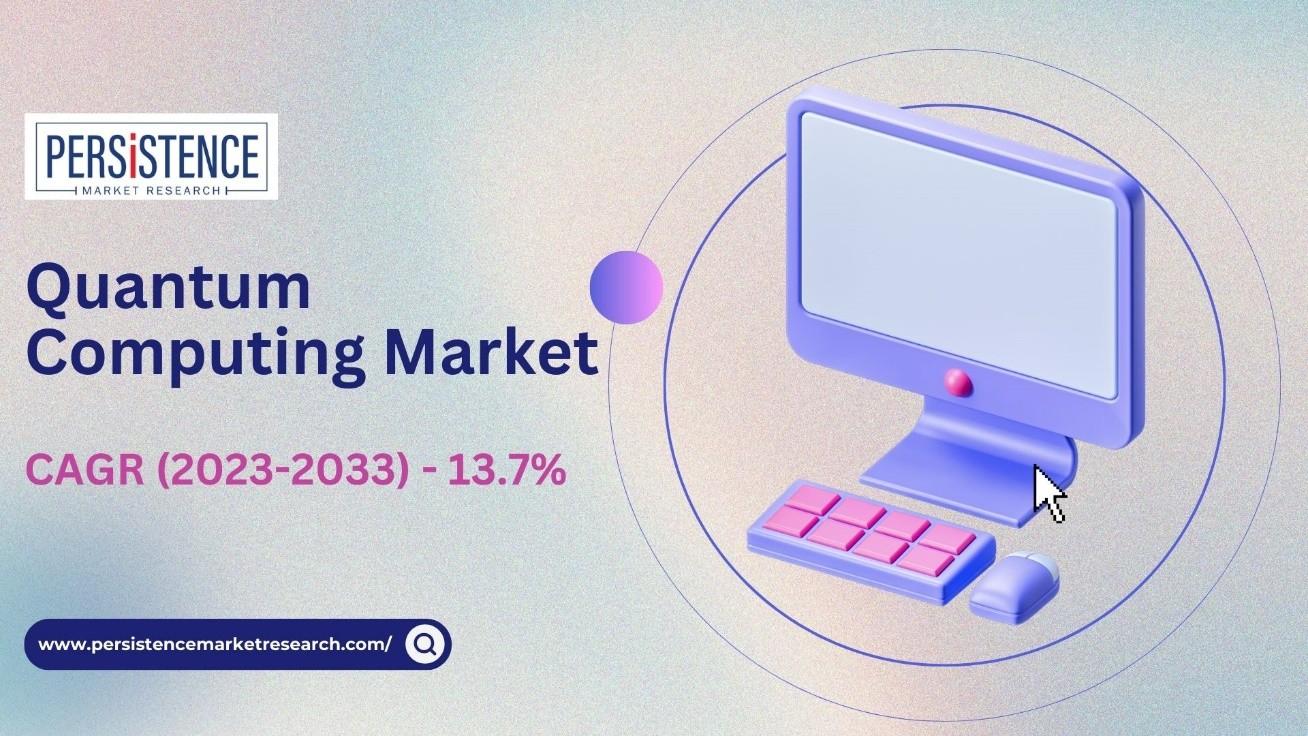Future Prognosis of the Europe Quantum Computing Market
The global quantum computing market, valued at approximately US$ 372.9 million in 2022, is projected to grow to US$ 1,505.7 million by 2033, at a CAGR of 13.7% from 2023 to 2033. Quantum computing utilizes qubits and principles of quantum physics to significantly enhance computational capabilities compared to traditional computers. The technology's potential benefits across various fields, including research, finance, medicine, and cybersecurity, are driving its growth. North America led the market with a 31.3% share in 2022, while the South Asia and Pacific region is expected to experience a remarkable CAGR of 84.5%. Quantum computing software held a 39.9% market share in 2022, with simulation and testing accounting for 25.8%.

The future prognosis of the Europe quantum computing market indicates a trajectory of substantial growth and development, driven by advancements in technology, increased investment, and strategic initiatives. Here’s a detailed look at the future outlook for the quantum computing market in Europe:
1. Market Growth and Expansion
Steady Market Growth: Europe is expected to continue experiencing steady growth in its quantum computing market. As technology advances and commercial applications expand, the market is projected to grow significantly, with increasing investments and innovation contributing to this upward trend.
Investment Surge: Both public and private sector investments are likely to increase, supporting research and development, infrastructure development, and commercialization of quantum technologies. The European Union’s strategic initiatives and national funding programs are expected to play a crucial role in driving market expansion.
2. Technological Advancements
Improved Quantum Hardware: Future advancements in quantum hardware, including the development of more stable and scalable qubits, are anticipated to enhance the performance and reliability of quantum computers. Breakthroughs in materials science and quantum error correction are expected to address current limitations and improve quantum computing capabilities.
Quantum Algorithms and Software: Continued progress in quantum algorithms and software will make quantum computing more practical and accessible. New algorithms that leverage quantum mechanics for complex problem-solving and optimization are expected to emerge, broadening the range of applications and use cases.
3. Commercialization and Industry Adoption
Expanding Applications: Quantum computing’s applications are expected to broaden across various sectors, including finance, healthcare, logistics, and cybersecurity. Industries will increasingly adopt quantum solutions to tackle complex problems, optimize operations, and enhance data analysis capabilities.
Quantum Cloud Services: The growth of quantum cloud services will facilitate broader access to quantum computing power. Businesses and researchers will increasingly leverage cloud-based quantum platforms to experiment with and deploy quantum technologies without the need for extensive hardware investments.
4. Strategic Initiatives and Government Support
National Quantum Programs: European countries will continue to implement and expand national quantum programs and initiatives. These programs will focus on fostering innovation, supporting research institutions, and promoting public-private partnerships in the quantum computing sector.
EU Quantum Strategy: The European Union’s strategic initiatives, such as the Quantum Flagship program, will drive collaborative research and development efforts across member states. The EU’s focus on creating a cohesive quantum computing ecosystem will strengthen Europe’s position in the global market.
5. Regional and International Collaborations
Cross-Border Collaborations: Europe is expected to see increased collaborations between countries and institutions, enhancing research capabilities and accelerating technological advancements. International partnerships will facilitate knowledge exchange and joint projects, contributing to Europe’s market growth.
Global Competitiveness: Europe’s competitive position in the global quantum computing market will be bolstered by its emphasis on innovation, investment, and strategic partnerships. European companies and research institutions will continue to make significant contributions to the global quantum ecosystem.
6. Talent Development and Education
Workforce Growth: The development of a skilled workforce will be crucial for sustaining market growth. European educational institutions and training providers will continue to offer specialized programs and certifications in quantum computing, ensuring a steady supply of talent.
Research and Development Focus: Ongoing R&D efforts will drive technological progress and innovation. European research institutions will play a key role in advancing quantum computing technologies and developing new solutions.
7. Challenges and Opportunities
Technical Challenges: Addressing technical challenges, such as qubit stability and error correction, will be essential for the continued growth of the quantum computing market. Ongoing research and innovation will focus on overcoming these challenges.
Market Opportunities: Emerging opportunities in sectors such as quantum cryptography, optimization, and drug discovery will drive market growth. Businesses and researchers will explore new applications and use cases for quantum computing.
Conclusion
In summary, the future prognosis of the Europe quantum computing market is highly optimistic, with expectations for significant growth and development. Advancements in technology, increased investment, and strategic initiatives will drive the expansion of the market, positioning Europe as a key player in the global quantum computing landscape. As the technology continues to evolve, its impact on various industries and sectors will become increasingly profound.
